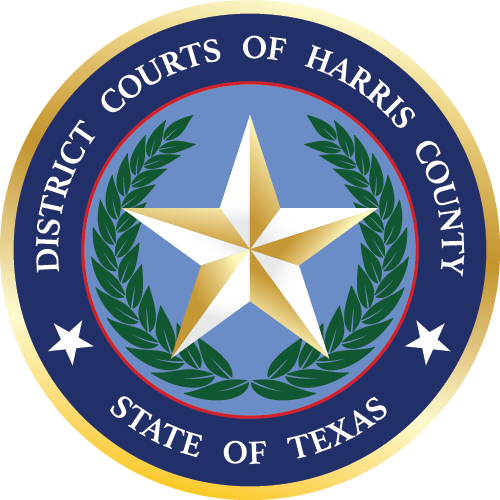So what happened here?

CenterPoint Energy faced an early round of scrutiny Tuesday about whether it adequately prepared for Hurricane Beryl, as more than 1 million Houston-area customers prepared to sweat through multiple days without power.
Texas Lt. Gov. Dan Patrick, utility experts and local residents questioned whether the company, which manages the electricity infrastructure serving nearly all of Harris and Fort Bend counties, could have done more to reduce widespread outages and shorten restoration times.
The scrutiny follows CenterPoint leaders acknowledging that they didn’t expect Beryl to hit Houston as hard as it did Monday morning, when the Category 1 hurricane slammed into the Texas coast and brought winds approaching 100 mph to the region. A CenterPoint spokesperson said Tuesday that the company didn’t forecast the storm turning toward Greater Houston, though meteorologists widely predicted the possibility of severe winds and scattered flooding hitting the region.
About 1.4 million customers remained without power as of Tuesday evening, about 36 hours after Hurricane Beryl arrived in Greater Houston. CenterPoint officials have said most of them might not have electricity until Thursday at the earliest.
Patrick, who is serving as acting governor while Gov. Greg Abbott is in Asia on an economic development trip, said Tuesday that he expects the state Legislature and Public Utility Commission of Texas will review CenterPoint’s actions before the storm. The lieutenant governor said he’s reserving judgment on CenterPoint’s approach until he gets a full report on how the company planned and dispatched work crews, though he was skeptical of claims that the storm path changed.
“Any thought that people were surprised that the storm might come to Houston is shocking to me,” Patrick said. “CenterPoint will have to answer for themselves if they were prepared and positioned.”
CenterPoint leaders attempted to dispel the idea Tuesday that the company wasn’t prepared for Hurricane Beryl, pointing to the 12,000 out-of-area frontline workers laboring to restore power Tuesday. CenterPoint coordinated before the storm with about 2,500 utility crew members from outside of the region and state to jump into action, then called nearly 10,000 more after the hurricane moved through Houston.
“No storm is alike. We looked at what was projected to be the path and what the impact would be and we prepared for that,” CenterPoint Director of Communications Alyssia Oshodi said in an interview Tuesday. “But what resulted was a little bit off what we thought the path was, and much more of a significant impact than what we initially thought we were going to see.”
[…]
While online criticism and political pressure toward CenterPoint mounted Tuesday, meteorologists and engineers cautioned that storm preparedness is a complicated calculus for utility companies.
Michael Webber, an energy resources professor and chair at the University of Texas at Austin, said utilities must run a cost-benefit analysis before every severe weather event to determine how many outside utility crews to hire. Webber said he didn’t believe CenterPoint was “particularly negligent,” noting that many people were caught off-guard by the severity of the storm.
“You don’t know how bad the hurricane’s going to be, and you don’t want to have 10,000 people there if you only need 3,000, because you have to pay for it,” Webber said. “It’s a balancing act.”
Matt Lanza, editor and meteorologist at Space City Weather, said in an interview Tuesday that Beryl was far more destructive in some areas than expected. Lanza said the storm rapidly intensified at landfall and lasted longer than expected over land, producing damage more representative of a stronger Category 2 storm.
“Meteorologists had all talked about that a couple days beforehand, saying we’re really going to have some issues, particularly south of I-10,” Lanza said. “The only thing a bit surprising was the damage north of I-10. I didn’t expect to see quite as much there.”
Still, Lanza said government officials and utility providers had at least two to three days of advance notice that the storm could cause major problems for Houston. Paul Lock, manager of local government relations for CenterPoint, argued Tuesday that the storm shifted in the 24 hours before it hit Houston.
“Especially after the derecho, why wouldn’t you overly prepare for something that could be more intense,” Lanza said.
[…]
While CenterPoint fields questions about its preparations for Beryl, Webber pointed to longstanding weaknesses in Texas’ electricity infrastructure — such as old poles, wires and transformers — as an issue that will continue to make hurricane season difficult for Houstonians.
“What’s happening now is more of a preview of the future than people recognize,” said Webber. “We as a society have to grapple with the fact that we built our grid for the weather of the 1970s and now we’ve got the weather of the 2020s.”
Webber noted that CenterPoint filed a wide-ranging resiliency plan with the Texas Public Utility Commission in April, outlining more than $2 billion in updates it wants to make between 2025 and 2027. The largest share of the spending, roughly $1.5 billion, would go toward replacing utility poles and towers, rebuilding circuits and upgrading equipment near the Gulf Coast.
Funding for the updates could come from government grants or customer rate hikes, among other sources.
“There’s a fundamental reckoning we have to go through as a society,” Webber said. “That means investing more to make the system more robust, and that’s going to cost more.”
In no particular order: I’ll believe Dan Patrick’s threats to Do Something about CenterPoint when I see him actually do something, by which I mean actual oversight, with enforcement mechanisms, that doesn’t result in a bunch of costs being pushed onto the customers. Let’s just say that the track record there for our Republican state overlords is not compelling.
As for the mustering of repair workers ahead of the storm, I tend to agree with Matt Lanza here: Especially after the derecho experience, and with the clear threat of Beryl, it seems clear that it was better to overprepare. This too is something that Dan Patrick and the Legislature could address, including minimum thresholds and contingency funding to cover “over-prepared” situations.
And the point about having a 70s grid facing 2020s weather, that too could be addressed by the Lege, and also by Congress. Again, it’s one part a matter of standards and one part a matter of funding. What’s the plan here? What, ideally, would CenterPoint want to help them do better the next time?
Be all that as it may, the Chron was unimpressed.
Speaking of preparation, how about a little from CenterPoint? The company didn’t even have the foresight to stage out-of-town repair crews in Houston prior to Beryl making landfall. KHOU reported Monday
[…]
We’re also left wondering how a Category 1 storm could’ve caused more power outages in Houston than a stronger Category 2 storm 16 years ago. Is it possible that our disaster planning has regressed?
In the wake of Ike, which left around 2 million without power, some for more than two weeks, then-Mayor Bill White commissioned a task force, which included representatives from CenterPoint, to examine the cause of Houston’s power outages and outline needed improvements. Many of the recommendations, released in 2009, are as salient now as they were then, yet it’s unclear whether CenterPoint has followed through on all of them. The utility did not respond to our request for comment. evening that these crews still hadn’t arrived yet, roughly six hours after the storm exited the city. When asked why they weren’t here already, a CenterPoint spokesperson told KHOU, “Beryl made more of an impact to our area than many believed was going to happen.” Of course, anyone with a weather app on their smartphone had known for days that the Houston region was directly in the storm’s path.
Among the report’s findings was that tree limbs falling on power and service lines during high winds caused most of the grid failures during Ike. In the years since, CenterPoint trimmed tens of thousands of trees in the Houston area. Texas’ Public Utility Commission requires utilities to file annual reports about vegetation management, but, because this is Texas, doesn’t impose any specific requirements. In its 2023 filing, CenterPoint reported “proactive” vegetation management along 4,608 miles of power distribution circuits last year, with plans for another 3,500 miles in 2024, but the company didn’t specify where exactly that work was done.
White’s task force recommended building out an “intelligent” grid system with remote units attached to power poles that would allow CenterPoint to automatically re-route power where it’s needed without a technician showing up to fix it. NPR reported in 2013 that 25% of the Houston power grid was equipped with these devices, but it’s unclear if that work has been completed.
The report even floated the idea of placing power lines underground, which would protect parts of the grid from extreme wind events. This “undergrounding” process, however, can be prohibitively expensive: $35 billion for all of Houston, at least in 2009 dollars. And guess who would pay? The customers. Instead, the report recommended undergrounding lines primarily for critical facilities such as sewage treatment plants, hospitals and assisted living facilities.
Burying power lines, it should be noted, can also be problematic in a place like Houston that floods, and when lines are damaged below ground, it can take longer to identify the problem and make repairs.
Still, technology is always improving and there are other solutions out there for states that are willing to look.
Florida, frequently battered by powerful hurricanes, provides a beacon of hope. After a series of major storms in 2004 and 2005, the Florida Public Service Commission forced its utilities to adopt several measures to buttress its grid, including replacing wooden transmission poles with sturdier concrete ones, proactive tree-trimming and undergrounding some power lines. When Hurricane Ian, a Category 4 storm, hit the state in 2022, more than 2.1 million people lost power, yet within 24 hours roughly two-thirds of customers got it back. Within eight days, except for parts of the state where the grid needed to be rebuilt, every customer had their lights on.
I mean, when Florida is being held up as a good example for what you should be doing, you need to do better. I don’t know what else to say.
Anyway. Here’s that new CenterPoint outage map, which as of Wednesday morning didn’t have any indicators of when service might be back for a given area. All I know is that my immediate area is still in the “assessment in progress” state. Sigh. At least my mother-in-law has power back, so we have some relief. Hope you have power one way or another. The Press has more.
UPDATE: That new CenterPoint outage map has some accuracy issues. Caveat lector.
UPDATE: And since last night, my piece of the neighborhood has now moved into the green zone. Yes, I have power again, which is great and wonderful and not the norm for my immediate area. Hoping for the best for everyone who is still waiting. The map’s primary green color now means “partially energized”, which may be their way of explaining why some folks living in those areas are still in the dark.
UPDATE: Walking around the neighborhood this morning, it appears more power has been restored than the map made me think. Maybe they’re just slow in updating it, I dunno. Here’s the current status per the Chron:
About 1.2 million customers were still in the dark and without air conditioning in a triple-digit heat index two days after Hurricane Beryl ripped through Houston.
CenterPoint promised it would restore 1 million customers Wednesday; by the end of Tuesday, the company had restored about one-third of total outages. The company’s website showed 1,371,480 customers were still without power as of 4:55 a.m. Wednesday, down from more than 2.26 million during Hurricane Beryl Monday.
[…]
CenterPoint Energy plans to restore power by Sunday evening to 750,000 of the more than 1 million customers still without power in the aftermath of Hurricane Beryl, according to a release from the company.
Workers had restored power to 1 million customers by late Wednesday, and said they “are nearing completion” of work to assess damages from the hurricane and fallen trees in the area. Centerpoint said it plans to restore power to 400,000 customers by Friday night and 350,000 Saturday amid frustrations regarding the lack of power and a lack of clear communications from the company.
So much sympathy for everyone still sweating in the dark. I wish you all the best.

















